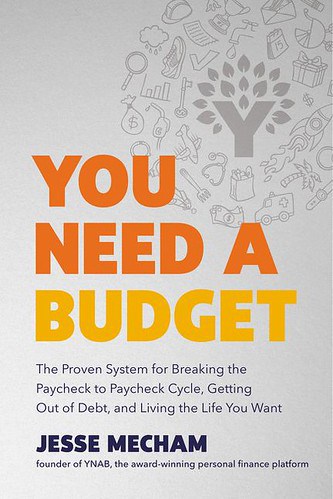How To Earn More Money And Grow Your Career In Five Easy Steps

You’ve probably heard this a thousand times: In order to build wealth, one must spend less money than they earn. This is a good piece of advice, and one of my favorites. This is often misinterpreted as “controlling your spending”.
Your earning is just as important as your spending.
What I believe a lot people overlook is that it’s easier for you to achieve your financial goals when you make more. My experience has shown that the best way to earn more money is to advance in your career. Today, I will show you how to grow your career to earn more while enjoying greater job satisfaction.
Career Growth: The Case for It

I can almost hear the collective groan.
Many people dislike career advice for a variety of reasons. Many people dislike their job.
I get it. I understand.
But I also realize that there is a contradiction between the desire to hate a job and the ability to achieve your financial goals. You will prolong your working hours if you are so miserable about your job that you can’t focus on it for an extra second.
If you invest some time and energy into your career, then you will end up earning millions more, reaching your financial goals sooner, and (very probably) enjoying your job more.
Would you be interested if I gave you some simple tips that you could easily implement to achieve this?
How can I be sure?
Let’s start with the elephant in the corner: how can you be certain that the Bozo who wrote this article can deliver?
In all honesty, you can’t. You might find some comfort in my accomplishments:
- My personal experience. During my career, I was able to grow my income at a rate of 8.16% annually. It’s clear that many people have achieved much more than this. But 8%+ over nearly 30 years isn’t bad. You won’t believe the impact if you increase your salary by 8% every year for 28 consecutive years.
- Corporate Experience I managed my career and watched countless co-workers, subordinates, or, in most cases, manage theirs. I became president of a $100-million company and managed the careers of hundreds. Along the way, I learned about how to grow your career, how you can get ahead and how employers view employees.
- Education. There’s thousands of books and millions of pages on the web about career management. I have read many and tried different techniques. Most of them are worthless but I have learned some valuable nuggets from a few.
- Millionaires are doing it.I’ve interviewed over 30 millionaires(and more will be on their way.) Most of them have developed high incomes by using the skills listed below, which are a major part of their success.
You are better than me. The tips I am about to share took me decades to develop. The majority of these tips were learned through trial and error. You can avoid the pain of failing and focus on what matters.
You can also ignore the thousands of tips that you may have collected from various sources. Applying the five steps listed below will give you the most impact with the least amount of work.
Here are five career-boosting tips for 2018.
Step One: Be proactive
This may not seem like a tip but it is a great place to start. Career success requires proactive behavior. If you read J.D.’s article last week, you likely understand that being proactive will lead to success in almost all aspects of your life.
According to my observations, I have observed three different types of workers around the world.
- The “go-with-the-flow-ers”. These people do their jobs and mind their own business. The “go-with-the flow”ers are the people who do their jobs and mind their own business. They may be wonderful people, but their career will not progress with a qu sera sera mentality. Employees who go with the flow get promotions and raises that match their attitude. Let me tell you that those aren’t high. Even if they are high-performing, companies will use them to their advantage with low raises unless they speak up — and they won’t do that because they will go with the flow.
- The “work-harders” They “work hard, and let their effort speak for itself.” This strategy can have a positive outcome because companies sometimes recognize good performance. It’s hit or miss because of two factors:
- These people often work hard for things that the company will not reward them. They are working hard, but the company doesn’t seem to care.
- Companies want to pay as little as they can. Even people who work hard and do well often receive basic raises. Why should they be paid more if their hard work will continue?
This plan leaves far too much to the chance. I have found that only one out of ten people who “work hard” are able to achieve a reasonable level of success, and one in 100 make a major impact on their career.
- People who take initiative are noticed. They are given direction. They manage the process and make sure that things are done the way wants. As a result, they get promoted and paid more. Anyone who wants to earn a higher salary should be proactive.
What is meant by being proactive?
It’s first and foremost a mentality. You must realize that you are the only one who cares about your career and its financial impact. You must do something to make things happen. You can’t expect anyone else to do the job for you.
The second step is to take action. The next step on our list is to determine what action you should be taking.
Step two: Discuss and document expectations
Imagine you hired a man to cut your lawn. He charges $30 per service. He expects that you pay him what you said you would. You have certain expectations from in exchange for payment.
You would certainly expect him cut the lawn. You may also expect him either to bag or clean the clippings. You could also expect him edge the lawn.
If he does these things, you feel fine giving him $30. You expected him to do certain things, and he did them. You expected to pay him $30 and you did. All expectations are met and the payment is given. Everyone is satisfied.
Let’s say he does more than just cut the grass, clean up the clippings and edge the lawn. He does more than you expect. Imagine he trims your shrubs, fertilizes your lawn and pulls out weeds.
You are happy with because he has done more than what you expected. You’re happy to pay $30. You’d pay more if he asked for more ( , i.e. increased his rates later), because he went above and beyond what you expected.
Let’s assume, however, that the lawn man didn’t perform as you had expected. He cut the grass, but didn’t edge it and left the clippings all over the place. He may have done other things he thought would be appreciated by you, but they weren’t. For example, he might have rearranged your yard decorations.
You feel that your $30 was wasted in this case — at least partially. He didn’t meet your expectations. Will you hire this person again? You might, if necessary. You won’t be paying him any more. You may even ask for a reduction the next time.
Your company and you will have the same relationship as you do with your lawn man (and how you evaluate him).
You were hired at a certain pay rate, and they expect you to perform certain tasks in exchange for this pay. They are willing to pay you more if you work harder. They won’t pay you extra if you do something wrong or less. You may be fired.
The question is: What do you expect from your company? The problem is that most people have no idea. The company may have a job definition that was written by an HR person five years ago. However, these descriptions are so vague that they can’t be used to determine anything.
How do people react in this situation? Guess. They guess.
Often, they are wrong. While they may get some things correct, it is almost impossible to guess the entire scope of the expectations of the company (aswell as the level) if you are just relying on their guesses.
What should employees do now? Simple: Employees should ask their bosses what they expect.
Here are some highlights. I won’t take you through every step because I have already given details elsewhere.
- Make an appointment with your manager. A good time to do this is during your annual review.
- Ask her to give you more details about what she expects of you.
- Tell her that the reasons you are interested in these things is because 1) you would like to work on the issues that she finds most important, and 2) you wish to ensure that you deliver the results that she desires.
- Then, talk to her about what she expects. Ask her to be specific and quantifiable whenever possible. You can’t use “Grow Sales” because you don’t have a goal. “Grow sales by 5% over the last year” is specific, and you can use it.
- As you discuss the details, write them down and decide on your expectations. It’s a discussion that involves both parties, so your input is important. If your boss expects you “to grow sales by 50%”, and this is not realistic, you should manage the discussion and come up with a more reasonable goal.
- You can send her an email to confirm that you have recorded all the answers correctly.
- You can write them down and then send them to your boss. You can make adjustments until you receive the approval.
Let me tell you that your boss will appreciate this. Your willingness to listen and ask her questions will probably blow her away. She will also be impressed by your desire to understand what the company needs so that you can meet it. When someone has done this for me in the past, I have been thrilled to work with that person and follow up with them later.
You will know what to do after the conversation. It is also in writing. At this point, there is no room for error.
Now it’s your turn to take action.
Step Three: Overperform
Do you still strive to achieve this now that you have a clear understanding of what is expected? Nope. You want to be more. Why? You are already paid by the company to perform these tasks! You have to work harder if you want to earn more money.
Return to the lawn man. Would you pay him $50 to do what you wanted? You wouldn’t! You only agreed to pay for more if the man did more.
The lucky ones who get the basic raises are those who follow through on their obligations. Why pay them more when they’re already paid for doing their job?
It’s now time for you to start working, as the proactive career manager. You must exceed your expectations.
How can you exceed your expectations? Here are a few examples:
- If you want to increase sales by 5%, aim for 8%.
- If you want to cut costs by $100k in the next year, then reduce them by $125k.
- Sign up 75 new customers if your goal is “sign up fifty new customers”.
You get the picture. Do more than you agreed to with your boss.
Don’t assume that your boss knows how much you are over-performing as you achieve these goals. She is a busy woman and may not follow your progress closely. You need to remind her regularly.
src=”https://www.getrichslowly.org/images/iStock_jobinterview.jpg” title=”Be likeable! There are many ways to accomplish this, including regular reports, one-on-ones, team meetings and more. I used to send out a weekly email update that included my expectations (the ones agreed upon) and what I did to meet them. I provided numbers and data to make it clear that I had done more than was expected. I knew , and so did my boss.
You’ll both be on the exact same page if you remind her regularly of what she’s expecting and how you’re exceeding that.
After you have exceeded expectations (which can take several months or even years), you should schedule a meeting to show her that you are capable of doing more.
It should be obvious by now whether you deserve to get a raise. You deserve one! Only two questions should remain: how much you will receive and when. It’s best to ask for a raise during a time when you can easily incorporate it into your budget. Although mid-year increases are not unheard of they can be difficult to obtain because budgets are often rigid.
After you’ve received your raise, it’s now time to begin the process again with higher expectations.
Step Four: Be Likable
This is a shocking fact: No one gets ahead by themselves. You will need help from others — people above, below, and on your level. People help those they like. People also give raises to people they like.
According to some studies, liking your job has a greater impact on success (and earning more) than actually performing well at work.
This issue by Penelope Trunk, author of Brazen Careerist
Incompetent people are more likely to work with them than those who are competent but unlikable. When they read this, most people nod their heads in agreement. Arguments are formed in the minds of unlikable individuals.
There’s still more. If you’re unlikable at work, people will start to think you’re less competent. Stop thinking that you can get by with your genius IQ. You can’t. You also need emotional intelligence. It is so common that special education classrooms are crowded with children who can read at the age of three. Even for geniuses, social skills are as important as intelligence in determining long-term success.
It’s important to be both likable and perform well. You don’t have to choose — , you want to be both an achiever as well as someone people like.
How can you make yourself more likeable?
There is no science to making people like you. But here’s what I’ve found works for the majority of people: Behave as they would like to be behaved.
You will be liked by others if you are kind, helpful, considerate and a nice person. Your career will also benefit.
I would also recommend reading a few books.
- Win Friends and Influence Others contains tried and true wisdom on how you can become more likeable and benefit from it.
- The Seven Habits Of Highly Effective People – one of J.D. Get Rich Slowly’s favorite book is The Emotional Bank Account. Make sure to make more deposits than withdrawals.
Don’t worry about the introverts. This doesn’t require you to be a party animal or social butterfly. You don’t need to be Mary Poppins, or a good-ol’ boy who slaps everyone on the back. Be friendly and thoughtful. You will be more likable if you are friendly and thoughtful.
Step Five: Develop your Talents
Having certain skills will increase your earning potential. You’re unlikely to be world-class at any of them. Only a small number of people can be considered world-class in any particular area.
You can achieve a high degree of competence by combining a variety of valuable skills. You are unique and valuable because of this collection of skills.
You probably won’t become the best salesperson on the planet. You won’t be the best salesperson in the world. Or the best speaker in public. Or the best analyst.
You can be an executive with strong skills in negotiation, public speaking and analysis. This skill set is rare and makes you a very valuable person.
Scott Adams, creator of Dilbert, calls this combining of skills “building a talents stack”. Adams describes what he meant by “talent stack”.
You can combine your normal skills to become extraordinary.
Understanding the workings of a talent stack is essential. People tend to think that developing talent in a single skill is the key to success. In some fields, this is a good idea. In medicine, it is natural to choose a specialization. In sports you can train to be the best at your sport, such as Tiger Woods in golf and Michael Jordan in basketball. You can develop your acting skills to become the best, just like Robert De Niro or Morgan Freeman.
Talent can also come from a unique set of skills, which no one else possesses. You can use different skills to create unique value that no one else has, and become one of a kind in your league.
This concept is 100% accurate. It’s been repeated in my career, and that of many others.
You need to develop your talent stack. How do you go about it? How can you improve your skills?
It is important to develop the necessary skills and educate yourself. Here are a few ideas:
- Attend classes. Either you can pay for the courses yourself, or many companies will reimburse these costs.
- Workshops/seminars. Again, on your own dime or paid for by the company. They sent me to classes in time management, public speaking, and sales — all on their dime, during working hours. The skills I learned in these classes have helped me both professionally and personally.
- You should read There are many great books at your local library (and they’re free). I prefer to find trusted online sources and learn from them.
- Listen. You can check out audiobooks at the library, and podcasts are also free. You can listen to both while driving to or from work.
- Volunteer. Charitable organisations will often let you take on projects your company may not think you are ready for. These are great learning opportunities.
- Multi-disciplinary teams. Volunteer to join a multi-disciplinary team at work. You can learn about marketing, sales and finance.
- Request a unique project from your boss. I’ve done this several times and have learned so much each time.
Develop your talent pool by being proactive. Focus on the skills that are most closely related to higher wages. You will become more valuable if you can do more. As we have seen, those that go above and beyond are paid more.
It sounds like a lot of work
You may think that the five “simple steps” are a lot of effort — perhaps more than you want to do.
Before you dismiss someone, please consider these points:
- You’ll be limited in many areas of your life if you don’t put in the effort.
- You can do a lot of the above work while you are at work. This will not require any additional time from your side.
- You can do some of the work, such as listening to podcasts or audiobooks, while you are doing other things, like driving, exercising, cutting the grass, etc. There’s also no extra time commitment from you.
- You can earn staggering by managing your career proactively.
- Earning more money means you can save more, which leads to faster financial independence. Earning more money means that you can save more and achieve financial freedom faster. If you combine a high income with a side hustle, you could retire within ten years.
- investment in your career is one of the most cost-effective investments. Who wouldn’t be willing to invest a few thousands for returns in the hundreds of thousands of dollars?
Despite this compelling evidence, there will still be those who find excuses to not act. It’s hard to do anything about them, they won’t take action regardless of how good the opportunity is.
Don’t let minor challenges deter you. It is worth the effort and time, especially when you compare it to the rewards.
Brick Wall
You can do all the above steps, but still not succeed. You can still hit a brick-wall, even if you’ve done everything correctly. Perhaps your boss isn’t supportive or the company doesn’t acknowledge your achievements. It’s obvious that such a situation is frustrating. (Fortunately, most bosses aren’t this way.)
Don’t give up if you run into a brick wall. Your hard work is not wasted. You need to start at the beginning and take a proactive approach to managing your career.
You have two options if you’ve tried everything above but still can’t get anywhere:
- Keep your job and grind it out.
- Find other opportunities within the company, or in another company
It is your decision.
This was a difficult decision I had to make on more than one occasion.
I was faced with the decision to either continue or to move on four times in my career. I decided to move forward in each instance. In two cases, I was forced to wait another two years until I found a better job. In the end, it paid off, as I always found better jobs. But I was patient. You may also have to be patient.
While I waited, the career-focused tasks that I completed prepared me for a higher performance level at my next job. It allowed me to begin the new business at a higher salary, and to deliver results that exceeded expectations for many years.
In nine out of 10 cases, you will not have any issues. You will enjoy your job and your compensation will rise if you follow the advice in this article.
Your net value will surely thank you.









+ There are no comments
Add yours